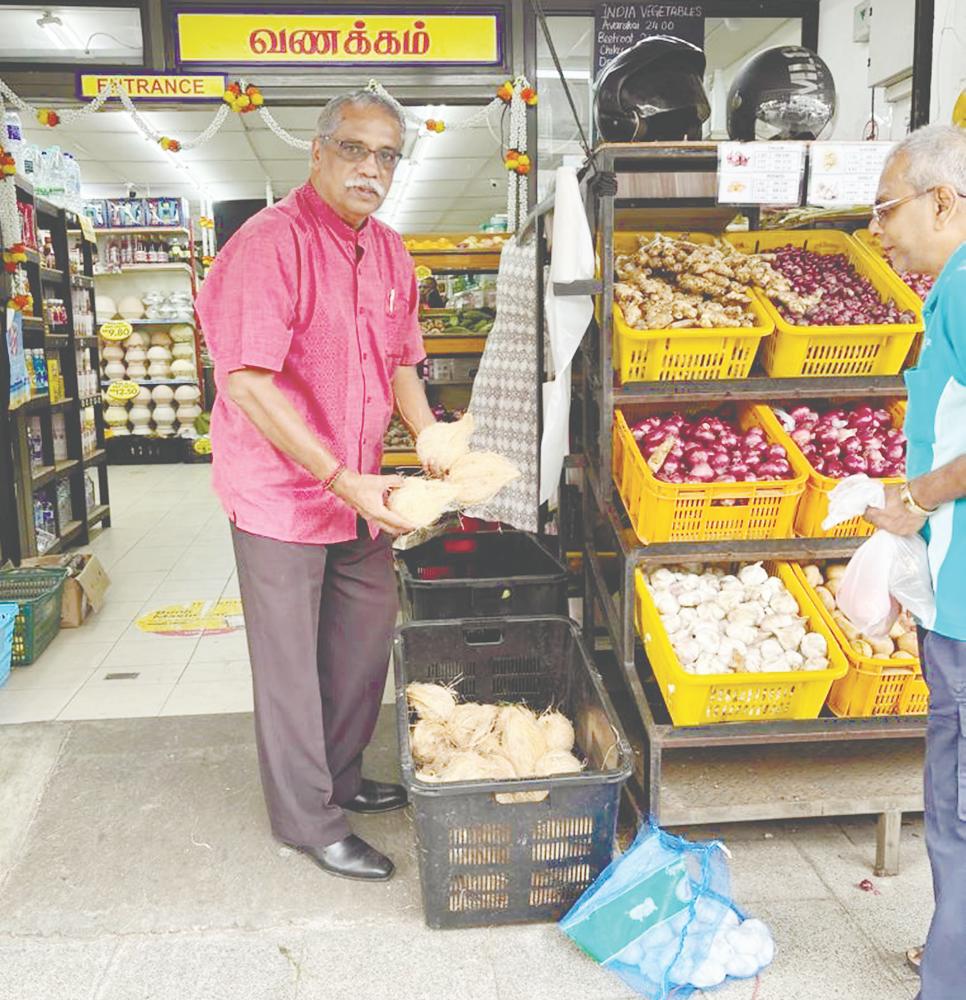GEORGE TOWN: As Malaysians celebrate Pongal this week and prepare for the Lunar New Year and Thaipusam next month, the festive cheer is being overshadowed by a rise in grocery prices.
The cost of essential goods, particularly fresh produce and spices, has skyrocketed in recent months and left consumers grappling with financial strain, said Penang Hindu Association (PHA) president Datuk P. Murugiah.
“For families looking forward to creating memories, these price surges have added an unwelcome layer of stress during what should be a joyful time.”
In response to a wave of consumer complaints, PHA conducted a survey on Jan 10 and 11 to verify the claims of price hikes.
Of the seven essential items surveyed, all experienced price increases of more than 50% compared with what they cost in October 2024.
The most shocking example was tomatoes, which surged from RM1.60 to RM8 per kg, representing a 400% increase.
“White garlic imported from China increased from RM5 to RM14.50 per kg, a 190% rise, while cardamom imported from India rose from RM92.10 to RM220 per kg, marking a 139% increase.
“Black sesame seeds jumped from RM10 to RM19.50 per kg, which is a 95% spike. Even coconut milk, a common ingredient in Malaysian cuisine, rose by 66.7% from RM9 to RM15 per kg.”
The price of husked coconuts, crucial for Thaipusam rituals, saw a 62.5% increase from RM1.60 to RM2.60.
Raw coffee has not been spared either, with the price of a 200g pack of Bru Coffee increasing by 55.5% from RM13.50 to RM21.
Murugiah said retailers have reported shortages due to bulk purchases by consumers, sparking concerns about potential hoarding ahead of the festive season.
“These price increases are particularly burdensome for the B40 community, who are already struggling with rising living costs.”
He said PHA has highlighted that some retailers are taking advantage of the festive season to inflate prices beyond reasonable profit margins.
“When some suppliers and wholesalers were approached, they blamed rising commodity costs and import duties as their reason to raise prices.”
He said while a profit margin of between 15% and 20% is acceptable, some businesses are reaping profits of between 40% and 60%.
“Such practices are unethical and exploitative, disproportionately affecting the B40 group, who are left with no choice but to adopt austerity measures.
“As a result, families are finding it increasingly difficult to make ends meet, even to prepare for basic celebrations.”
PHA has also received feedback from housewives complaining about the price differences at wet markets compared with retail shops.
Murugiah urged the Domestic Trade and Cost of Living Ministry and the Prime Minister’s Department to investigate consumer complaints and take action against importers, manufacturers, wholesalers and retailers who arbitrarily raise prices of essential items, particularly during festive seasons.
“Setting ceiling prices alone is insufficient. Continuous monitoring and enforcement are critical to ensuring compliance and protecting consumers.”
In addition to government intervention, PHA encourages consumers to adopt cost-effective practices.
Simple changes in spending habits, such as buying in smaller quantities, shopping at wet markets or seeking alternative ingredients, could help households cope with rising prices.
“Moderation in spending habits is not just a short-term solution as it could pave the way for a more sustainable lifestyle.
“While adopting a thrifty lifestyle may be challenging at first, it is a necessary step for many families to navigate the financial pressures brought about by these price hikes.”









